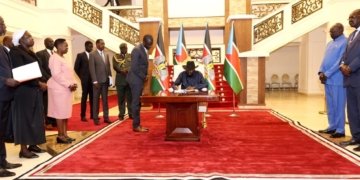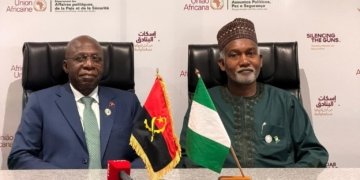KAMPALA, Uganda (BG) — Ugandan lawmakers have urged the government to prioritize investment in school infrastructure, citing critical gaps that hinder the effective implementation of the new lower secondary school curriculum.
Their concerns include the lack of ICT (Information and communication technology) facilities, inadequate science laboratories, and insufficient teacher training, particularly in rural areas.
Speaking in Parliament on Wednesday, Shadow Minister for Education and Sports Hon. Joseph Ssewungu highlighted the urgent need for improved facilities to support the skills-based curriculum.
He warned that the absence of ICT infrastructure prevented schools from submitting students’ credit assessment scores on time.
“The new curriculum, being skills-based, requires that science labaratories and workshops are well-equipped to give the learners enough chance to create new knowledge through self-learning. Unfortunately, many rural and private schools lack these and are also short of science teachers,” Ssewungu said.
MPs raised concerns about electricity shortages in village schools, making it difficult for students to complete ICT-related coursework.
Hon. Robert Migadde pointed out that many government-aided seed schools lack computer labs and stable electricity, putting them at a disadvantage compared to urban institutions.
Speaker Anita Among emphasized the importance of infrastructure in schools, extending the discussion beyond ICT and laboratories to include libraries.
She called on the Minister of Finance to allocate funds for rural electrification projects, which she said should be prioritized in the upcoming budget.
The issue of teacher training also took center stage. Hon. Geofrey Okello noted that many educators remain unfamiliar with the new curriculum’s competence-based approach due to inadequate training.
Hon. Esther Mbayo urged the Ministry of Finance to expedite the release of funds to facilitate teacher training programs.
Uganda’s State Minister for Primary Education Hon. Joyce Moriku, acknowledged the concerns and assured MPs that the government is committed to strengthening school infrastructure to support the revised curriculum.
As the debate continues, Ugandan lawmakers have called for regular progress updates from the Ministry of Education to ensure the reforms are implemented effectively.























